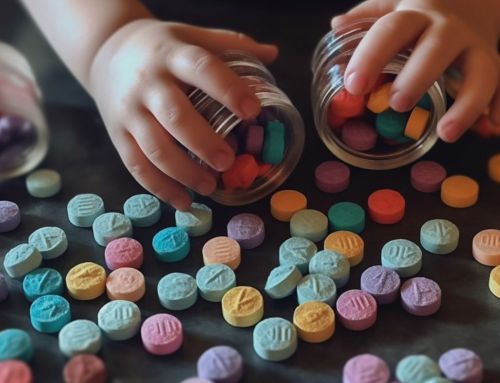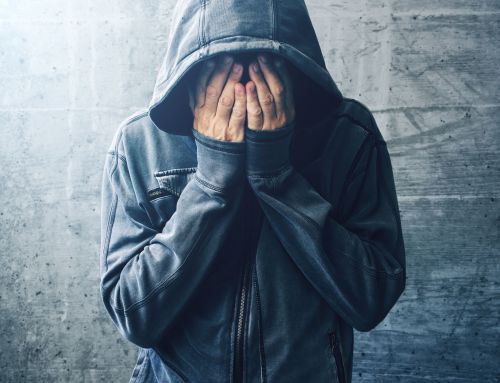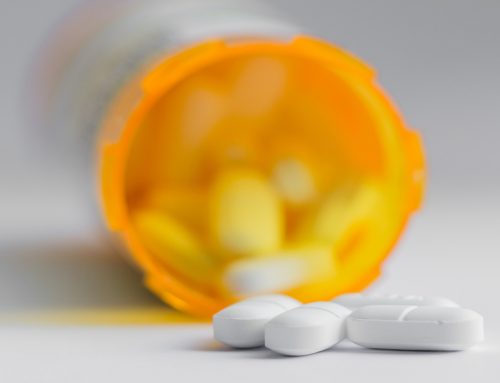
Did you know that there were 70,237 drug overdose deaths in the United States in 2017? Opiates, which fall under the branch of opioids (other than methadone) were the main driver of these drug overdose deaths. Opioids were behind 47,600 of those overdose deaths in 2017. In other words, that’s a shocking 67.8% of all drug overdose deaths in the United States.
These statistics reveal a terrifying truth: our country is facing an opiate epidemic with severe consequences. This is a wake-up call that we must respond to. We must offer a space where those battling with a substance abuse disorder can safely detox and undergo treatment.
Opiate detox can make the difference between life or death. During opiate detox, you can expect to safely stop using the drug as your body rids itself of toxins accumulated through substance abuse. You’ll be medically supervised throughout the entire process to ensure that the withdrawal symptoms you experience are safely taken care of.
Opiate detox is generally the first step of treatment for addiction recovery. This allows your body to work with a clean slate during the core components of treatment. It is worth noting that an opiate detox should never be attempted without medical supervision and care. A detox can result in severe withdrawal symptoms, some of which can become deadly if not properly treated.
Opiate detox can help restore the power into the hands of you or a loved one. Addiction is a challenge that can not only be overcome, but it can also provide you with an enormous amount of strength and growth.
What is an Opiate Addiction?
Drug addiction, also referred to as substance use disorder is a disease that impacts an individual’s brain and behavior. Drug addiction leads to an inability to control the use of the substance despite negative consequences. Opiate addiction, in particular, could result from experimental use or a prescription that was meant to temporarily alleviate physical pain.
In any case, opiate addiction is a serious disease that must be addressed. Opiate addiction can be recognized based on a variety of different signs. Some of the many signs of opiate addiction include:
- Regular drug use becomes normal — daily or even several times a day
- Having intense urges for opiates that block out any other thoughts
- Needing more of an opiate to feel a certain high – also known as developing a tolerance
- Prioritizing that you maintain a constant supply of opiates
- Spending money on opiates, even though you can’t afford it
- Neglecting obligations and work responsibilities
- Isolating oneself and avoiding social or recreational activities because of substance abuse
Recognizing the warning signs of opiate addiction can save you or a loved one’s life. The first step of targeting opiate addiction is admitting that there is a problem at hand. Once you can come to terms with the addiction, you can start taking the right steps to overcome it.
Symptoms and Signs of an Opiate Addiction
Before we get into the ins and outs of opiate detox, it’ll help to become more familiar with opiate addiction symptoms. The exact symptoms of opiate addiction will vary based on the severity of the addiction. Symptoms can be anywhere from moderate to severe. It’s important to recognize these symptoms as early on as possible.
Being honest with yourself about your substance use habits is the first step. Once you become honest with yourself and decide to take action, your entire life can change. Some of the many symptoms of opiate addiction include:
Mood symptoms of opiate addiction:
- Depression
- Mood swings
- Agitation
- Anxiety
- Irritability
Behavioral symptoms of opiate addiction:
- Drowsiness
- Slurred speech
- “Doctor shopping” or going to many doctors to obtain prescriptions for more opiates
- Using larger amounts of opiates than prescribed
- Taking opiates for longer than prescribed
Physical symptoms of opiate addiction:
- Constriction of pupils
- Constipation
- Cough suppression
- Pain relief
- Withdrawal
- Coma
Psychological symptoms of opiate addiction:
- Hallucinations
- Delusions
- Memory loss
- Alterations in personality
Detoxification Process for Opiate Addiction
Opiate detox is a medical process that can be described by the body safely and successfully purging itself of opiates. An opiate detox serves as the foundation for which treatment can take place. Key components of treatment include evidence-based therapies, support groups, and much more.
During opiate detox, our medical staff will care for you 24/7. Our licensed specialists will keep track of the symptoms and help you to alleviate discomfort. When an individual develops an opiate dependence, stopping consumption all together can trigger many symptoms in as little as 6-12 hours after quitting. This process is referred to as withdrawal. The symptoms of opiate withdrawal occur during the detoxification process.
That’s why it’s crucial to be in a professional medical setting when undergoing an opiate detox. You’ll be able to maneuver through the discomfort associated with withdrawal in a much safer manner.
Opiate Withdrawal Timeline and Symptoms
During opiate detox, withdrawal symptoms can range in severity from mild to intense. The severity of symptoms will be dependent on a variety of factors that we’d be happy to discuss with you. These factors include the length of addiction, as well as the amount that was generally taken.
Other factors can also play a role in assessing potential withdrawal symptoms such as:
- How the individual administered the opiate, as well as exactly what type it was
- Underlying medical conditions, such as co-occurring mental disorders
- Some environmental and/or biological factors, like a family history of addiction and previous traumas
However, there’s a general outline that most people struggling with opiate addiction can expect to experience during opiate detox. This outline can be explained through three main phases.
Phase 1: Early Withdrawal (six to 30 hours)
The first phase of withdrawal symptoms typically begins within six to 12 hours after quitting short-acting opiates like heroin. It may take closer to 30 hours for long-acting prescription opiates. This is the phase when uneasy physical and psychological symptoms begin to take place.
Throughout a few days, these symptoms may become more severe and intense. This is the part where we remind you that it has to get worse before it gets better! Some of the early withdrawal symptoms include:
- Joint, bone, and muscle aches and pains
- Insomnia
- Sweats
- Loss of appetite
- Racing heart
- A runny nose
- Increased blood pressure
- Anxiety
- Fever
- Tearing up
Phase 2: Peak Period (72 hours)
Late withdrawal symptoms begin to settle in about 72 hours. This is when withdrawal symptoms often reach their peak. This phase can last up to five days, but the exact time will vary based on the unique patient. We assure you that you’ll be safe with us during the opiate detox process.
During the peak period, withdrawal symptoms may seem flu-like, such as dehydration and a lack of appetite. It is vital to upkeep sufficient levels of hydration and nutrition during this time. Some of these late withdrawal symptoms include:
- Diarrhea
- Nausea and vomiting
- Stomach cramps
- Depression
- Chills
- Intense drug cravings
Phase 3: Late Withdrawal
The third phase of opiate withdrawal is when physical and some of the more intense psychological symptoms typically begin to alleviate. During this phase, it’s crucial to become aware of what symptoms you’re still experiencing. The first handful of days after the general reduction of symptoms requires gentle and patient care.
While symptoms such as cramps and chills may dissipate, drug cravings, as well as persisting feelings of anxiety, restlessness, insomnia, and depression may still linger. This is where the key components of treatment come in. We offer a variety of evidence-based therapies and methods to target the roots of addiction, as well as the temptations that come along with it.
Medication-Assisted Treatment During an Opiate Detox (MAT)
Medication-assisted treatment is the use of anti-craving medicine such as naltrexone (Vivitrol), buprenorphine (Suboxone) or methadone to help address issues related to opiate dependence. These issues include withdrawal, cravings and relapse prevention. It is worth mentioning that medication-assisted treatment is meant to complement an overall comprehensive treatment plan.
There is a common misconception around medication-assisted treatment that is centered around the belief that it is simply substituting one addictive drug for another. It is crucial to note that is not true. Medication-assisted treatment is taken very seriously and is closely monitored.
Taking medication for opiate addiction can be compared to taking medication for any other chronic disease, such as diabetes or asthma. When it is used according to the doctor’s instructions, the medication will not form a new substance use disorder.
Key Components of Treatment Alongside Opiate Detox
Opiate detox is generally the first step of an in-depth treatment plan. Detoxification allows your body to begin treatment with a clean slate. Each treatment is tailored to the patient’s recovery goals. Our addiction specialists can walk you through the different components of our treatment plans. In the meantime, you expect to receive the following benefits of any addiction recovery plan:
Individualized Recovery Program
Each recovering individual has varying needs when it comes to treating their substance abuse problem. These needs can include a certain type of regime and schedule, therapy preferences, and recovery goals. There are many questions we’ll be asking you to tailor the right treatment program for you.
Specialized Services
Co-occurring disorders, otherwise known as dual diagnosis treatment, are a common aspect of treatment. Most addictions have underlying mental and emotional roots. Addressing these roots and developing healthy coping mechanisms is crucial to treatment.
These mental health concerns include, but are not limited to:
- Bipolar Disorder
- Depression
- Anxiety
- Post-Traumatic Stress Disorder
To effectively treat addiction, it is crucial to treat the recovering individuals as a whole. The physical aspect of addiction is just one of many.
Qualified Staff
It is an absolute priority of any recovery center to employ staff that are fully trained, qualified and licensed experts within their respective fields. It is crucial for the staff to also have an empathetic relationship with the patients, rather than confrontational. We pride ourselves in a caring staff that promotes a “we’re in this together”, family-like approach.
Evidence-Based Therapies and Methods
There are many different types of evidence-based methods and therapies that supplement a treatment program. One of the largest benefits includes individual therapy sessions that address all the patient’s concerns. Along with these one-on-one sessions, we also offer support groups where peer support is the main focus.
Aftercare Planning
A comprehensive aftercare program aims to smooth the transition back into your normal life and help you remain on track. Continuum care also helps to prevent relapse. This can be anything from a step-down form of treatment to attending recovery meetings.
We’d like to emphasize that this is only a fraction of all the benefits you’ll be receiving at a recovery center such as ours. No matter how big the challenge, there is always a solution. We believe in your progress and can’t wait to guide you through the recovery journey.
Seek Help With North Jersey Recovery Today
Opiate addiction does not need to control your or a loved one’s life any longer. Opiate detox can help you not only recover from addiction but come out even stronger. Opiate detoxification serves as the foundation for which treatment can take place.
Our treatment programs are personalized for each patient based on their unique circumstances and needs. We’ll be there to guide you from the beginning through aftercare planning. There will never be a moment when you feel isolated and alone. Our community is meant to support and encourage you throughout addiction recovery.
At North Jersey Recovery Center, we have many opiate treatment resources to help you with addiction recovery. Our team of expert counselors, psychologists, and other medical professionals are eager to help bring positive change into your life. Please don’t hesitate to reach out to us here for more information about opiate detox and corresponding treatment programs.






